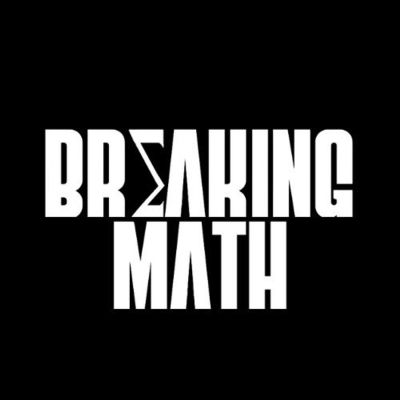Hosted by Gabriel Hesch and Autumn Phaneuf, who have advanced degrees in EE and industrial engineering/operations research respectively, come together to discuss mathematics as a pure field al in its own as well as how it describes the language of science, engineering, and even creativity. Breaking Math brings you the absolute best in interdisciplinary science discussions - bringing together experts in varying fields including artificial intelligence, neuroscience, evolutionary biology, physics, chemistry and materials-science, and more - to discuss where humanity is headed. website: breakingmath.io linktree: linktree.com/breakingmathmedia email: breakingmathpodcast@gmail.com
http://www.breakingmath.io
48: Thinking Machines (Philosophical Basis of Artificial Intelligence)
Machines, during the lifetime of anyone who is listening to this, have advanced and revolutionized the way that we live our lives. Many listening to this, for example, have lived through the rise of smart phones, 3d printing, massive advancements in lithium ion batteries, the Internet, robotics, and some have even lived through the introduction of cable TV, color television, and computers as an appliance. All advances in machinery, however, since the beginning of time have one thing in common: they make what we want to do easier. One of the great tragedies of being imperfect entities, however, is that we make mistakes. Sometimes those mistakes can lead to war, famine, blood feuds, miscalculation, the punishment of the innocent, and other terrible things. It has, thus, been the goal of many, for a very long time, to come up with a system for not making these mistakes in the first place: a thinking machine, which would help eliminate bias in situations. Such a fantastic machine is looking like it's becoming closer and closer to reality, especially with the advancements in artificial intelligence. But what are the origins of this fantasy? What attempts have people made over time to encapsulate reason? And what is ultimately possible with the automated manipulation of meaning? All of this and more on this episode of Breaking Math. Episode 48: Thinking Machines References: * https://publicdomainreview.org/essay/let-us-calculate-leibniz-llull-and-the-computational-imagination * https://spectrum.ieee.org/tag/history+of+natural+language+processing https://en.wikipedia.org/wiki/Characteristica_universalis https://ourworldindata.org/coronavirus-source-data This episode is distributed under a CC BY-SA 4.0 license. For more information, visit CreativeCommons.org. [Featuring: Sofía Baca, Gabriel Hesch]
Ways to support the show:
-Visit our Sponsors: theGreatCoursesPlus.com/breakingmath Get a free month of the Great Courses Plus while supporting this show by clicking the link and signing up! brilliant.org/breakingmath Sign up at brilliant.org, where breaking math listeners get a 20% off of a year's subscription of Brilliant Premium!
Patreon Become a monthly supporter at patreon.com/breakingmath
Merchandise Purchase a Math Poster on Tensor Calculus at our facebook store at facebook.com/breakingmathpodcast
---
This episode is sponsored by
· Anchor: The easiest way to make a podcast. https://anchor.fm/app
Support this podcast: https://anchor.fm/breakingmathpodcast/support
This show is part of the Spreaker Prime Network, if you are interested in advertising on this podcast, contact us at https://www.spreaker.com/show/5545277/advertisement
